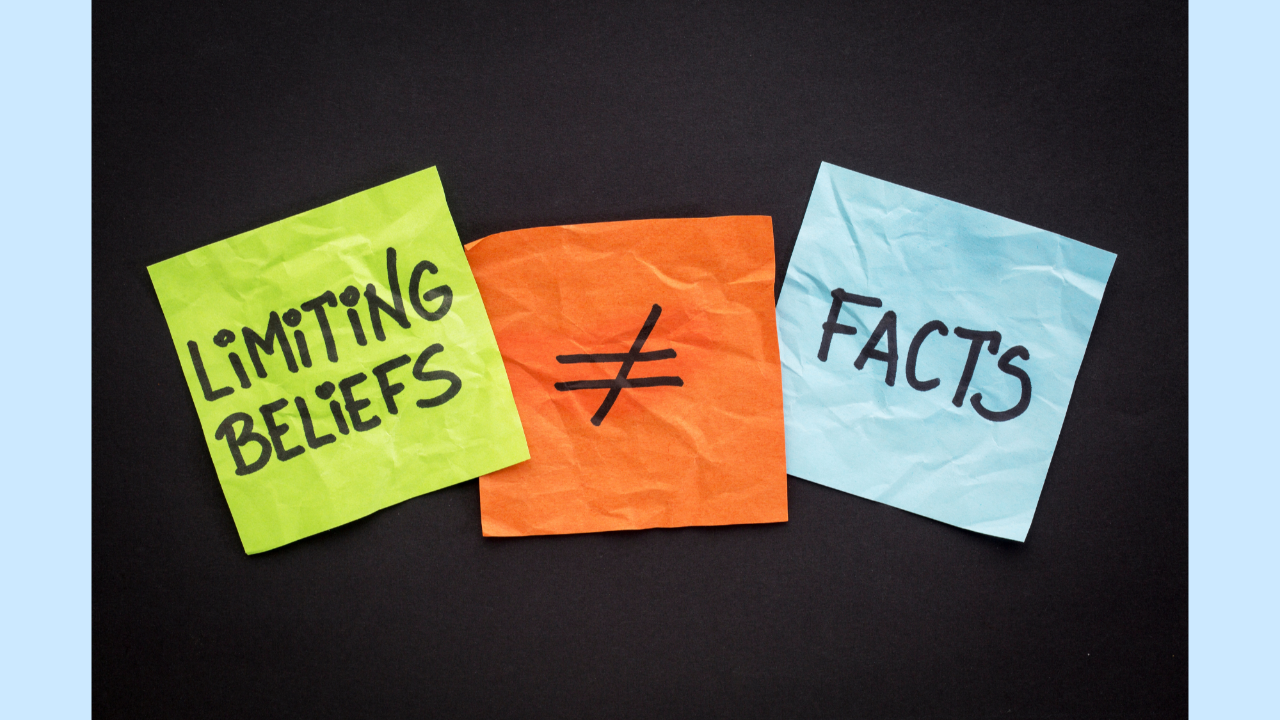How to Forgive What Seems Unforgivable

Introduction:
In life, people inevitably wrong us. Sometimes, they realize their mistake, apologize sincerely, and work to make amends. In those cases, forgiving can be relatively easy. But what about those times when the wrongdoer never apologizes or when the harm done seems so enormous that forgiving appears utterly unfathomable? This article delves into the process of forgiving even what seems unforgivable.
Why Forgive?
Before we explore how to forgive, it's essential to understand why forgiveness is crucial. When you cling to bitterness and refuse to forgive, you allow the wrongdoing of others to corrode your own well-being. Grudges have a powerful impact on your mental health, affecting your overall happiness and even your physical health. Forgiveness, on the other hand, supports your mental health. Let's look deeper into the harm of holding grudges and the benefits to forgiveness.
The Harm of Holding Grudges
Grudges, those deep-seated feelings of resentment and unforgiveness, may seem like a way to hold others accountable for their actions. However, in reality, they can be incredibly detrimental to your overall well-being. Here are some of the harmful effects of holding grudges:
-
Emotional Turmoil:
One of the most immediate and obvious consequences of holding a grudge is the emotional turmoil it brings. Grudges keep the negative emotions associated with the wrongdoing alive within you. Anger, resentment, and even hatred can fester, causing constant emotional distress. -
Stress and Anxiety:
The emotional burden of a grudge can lead to increased stress and anxiety. Your body and mind remain on high alert, anticipating confrontations or reliving the hurtful event repeatedly. This chronic stress can negatively impact your physical health as well. -
Strained Relationships:
Holding onto grudges can strain not only your relationship with the person who wronged you but also with others in your life. Your unresolved anger and bitterness can seep into your interactions with friends and family, causing unnecessary tension and conflict. -
Decreased Happiness:
Grudges are like heavy weights that you carry around every day. They can overshadow moments of joy and contentment, making it challenging to experience happiness to the fullest. -
Negative Health Effects:
Studies have shown that the stress associated with holding grudges can have adverse effects on your physical health. It can lead to high blood pressure, weakened immune system, and even cardiovascular problems over time. -
Limited Personal Growth:
Grudges can hinder personal growth and self-improvement. When you're preoccupied with resentment, you have less mental and emotional space to focus on your own development and happiness. -
Missed Opportunities:
The energy and time spent dwelling on a grudge could be channeled into pursuing your goals, dreams, and passions. Holding onto resentment can prevent you from embracing new opportunities and experiences. -
Negativity Perpetuation:
Grudges keep the negativity of the past alive in the present. This continuous dwelling on the hurt can make it difficult to move forward, as it reinforces a victim mentality.
Benefits of Forgiveness Include:
-
Emotional Healing:
Forgiveness is the key to emotional healing. When we forgive, we release the emotional baggage we've been carrying. We find relief and healing in the act of letting go. -
Mental Freedom:
Forgiveness liberates our minds from the chains of bitterness and resentment. It allows us to reclaim our mental freedom, enabling us to focus on positive aspects of life. -
Improved Well-being:
Studies have shown that forgiveness can have a positive impact on our overall well-being. It reduces stress, lowers blood pressure, and promotes feelings of contentment. -
Restoration of Peace:
Forgiving brings inner peace. It soothes the turbulence within our hearts and minds, making room for serenity and tranquility.
In summary, the harm of holding grudges extends far beyond the initial hurt. It can negatively affect your emotional and physical well-being, damage relationships, and limit your personal growth. To truly experience the benefits of forgiveness and lead a happier, healthier life, it's essential to let go of grudges and release the burdens that hold you back. Now that we've established the importance of forgiveness, let's delve into the process of how to forgive even the most seemingly unforgivable acts.
How to Forgive What Seems Unforgivable
In the profound journey of forgiveness, the first steps involve dispelling common misconceptions and redefining the concept to empower oneself.
Step 1 To Forgiveness: Know What Forgiveness Is Not
Forgiveness should never be confused with condoning or excusing the wrongdoing. It doesn't entail an endorsement of the hurtful actions or pretending that the transgression never took place. Instead, true forgiveness acknowledges the harm and injustice done but makes a conscious choice to release the bitterness that can fester within.
Step 2 To Forgiveness: Revise Your Definition of Forgiveness
The transformative shift lies in redefining forgiveness as "letting go of bitterness." This change in perspective grants you the power to move forward while honoring the pain and betrayal you've experienced. By shifting the focus from the wrongdoer's actions to your own emotional well-being, you regain control over the narrative of your life.
Step 3 To Forgiveness: Let Go of Bitterness
Embracing the path of forgiveness is not just about altering definitions; it's about the profound healing and personal growth that follow.
3a: Recognize That Forgiveness is a Gift to Yourself
Understanding that forgiveness is primarily a gift to yourself is paramount. The bitterness that accumulates in response to the wrongs committed is akin to a corrosive acid, slowly eating away at the beauty of your soul. By forgiving, you bestow upon yourself the precious freedom to live a lighter, happier, and more open-hearted life.
3b: Acknowledge the Complexity of People
In your journey towards forgiveness, acknowledging the multifaceted nature of human beings is a crucial milestone. People are not infallible, and their actions are often driven by a complex interplay of emotions and circumstances. This realization doesn't necessitate condoning or excusing their behavior but invites empathy and understanding. Reflecting on your own moments of imperfection can further foster this understanding.
3c: Choose Compassion Over Bitterness
The notion that "hurt people hurt people" is a reminder that, while it doesn't justify their actions, it highlights that those who have wronged you may be grappling with their own inner turmoil. Rather than nursing bitterness, cultivating compassion becomes an act of hope. It's a wish for their healing and transformation, envisioning a future where they can, in turn, spread goodness rather than pain.
Hopefully these steps help you understand how to forgive. This transformative journey of forgiveness is not just about making amends with the past; it's a path towards self-liberation, personal growth, and the possibility of a future unburdened by grudges. In the next section, we’ll explore this further.
Expert Insights: The Gift of Forgiveness
Prominent psychologist and accomplished author, Dr. Katherine Johnson, offers a profound perspective on the act of forgiveness. She underlines that forgiveness is not just a gift extended to others; it is, fundamentally, a gift you bestow upon yourself. In her expert insights, Dr. Johnson explores the deep significance of forgiveness as an act of self-compassion that sets the stage for profound healing and personal growth. Dr. Katherine Johnson's words resonate deeply with the essence of forgiveness. To understand her viewpoint more comprehensively, let's delve into the layers of her insights:
-
Forgiveness as Self-Gift:
Dr. Johnson's statement underscores the idea that forgiveness is a powerful act of self-care. It is a gift that you present to your own heart and soul, choosing to free yourself from the shackles of resentment and bitterness. In offering this gift to yourself, you create the space for emotional rejuvenation and renewal.
-
The Act of Self-Compassion:
Forgiveness, according to Dr. Johnson, is a quintessential expression of self-compassion. It is a compassionate acknowledgment of your own pain and a recognition that holding onto grudges is a form of self-inflicted suffering. By choosing to forgive, you extend kindness and understanding to yourself, much like you would to a dear friend in pain.
-
Paving the Way for Healing:
Forgiveness, as Dr. Johnson suggests, is not merely an abstract concept but a tangible path to healing. It acknowledges that the wounds caused by others can be mended by your own acts of grace. In releasing the bitterness and anger associated with the past, you pave the way for emotional and psychological healing.
-
Catalyst for Personal Growth:
Dr. Johnson's insights emphasize that forgiveness is not a static gesture but a dynamic force propelling personal growth. It challenges you to confront your own vulnerabilities, question your preconceived notions, and evolve into a more resilient and understanding individual. In this way, forgiveness becomes a catalyst for profound self-improvement.
In summary, Dr. Katherine Johnson's expert insights illuminate the transformative nature of forgiveness. They underscore that forgiveness is a powerful act of self-compassion, a conduit for healing, and a catalyst for personal growth. By extending this gift to yourself, you embark on a journey towards greater emotional well-being and a brighter, more compassionate future.
Inspirational Quotes on Forgiveness
Forgiveness is a profound and transformative act that resonates with individuals from all walks of life. Here are some of my favorite inspirational quotes from various thinkers, authors, and leaders that illuminate the beauty and power of forgiveness:
- “To forgive us to set a prisoner free and discover the prisoner was you.”- Lewis Smedes
- “Forgiveness is a decision of the heart to go against natural instinct to pay back evil with evil.” - Pope John Paul II
- "Forgiveness does not change the past but it does enlarge the future." - Paul boese
- “Forgiveness isn’t approving what happened. It’s choosing to rise above it.” - Robin Sharma
- “True forgiveness is when you can say ‘Thank you for that experience’.” - Oprah Winfrey
These inspirational quotes remind us that forgiveness is a powerful and transformative act of self-compassion, strength, and love. It has the capacity to free us from the burdens of the past and lead us to a brighter, more peaceful future.
Conclusion:
In conclusion, the art of forgiveness is a profound and transformative journey. By understanding its true nature and embracing its manifold benefits, we can free ourselves from the shackles of unforgiveness, forgiving things that seem unforgivable. The power of forgiveness lies not only in healing relationships but in healing ourselves. As you embark on this journey, remember that forgiveness is not a one-time act but an ongoing process, a path towards lasting peace and personal growth. Embrace it and let it guide you towards a life filled with love, connection, and inner serenity. Forgiveness is beneficial for your peace of mind and mental health. For more tips to improve your mental health, click here to check out this article on 10 tips to improve your mental health.
Additionally, if you'd like 1-1 support on forgiveness or to improve your overall mental health, happiness, and ability to create the life you desire, please click here to visit my website for 1-1 life-coaching.
Want more inspiration in your inbox?
Join the mailing list to get the latest blog posts, life coaching tips, and personal updates from Carol Braha Coaching.





